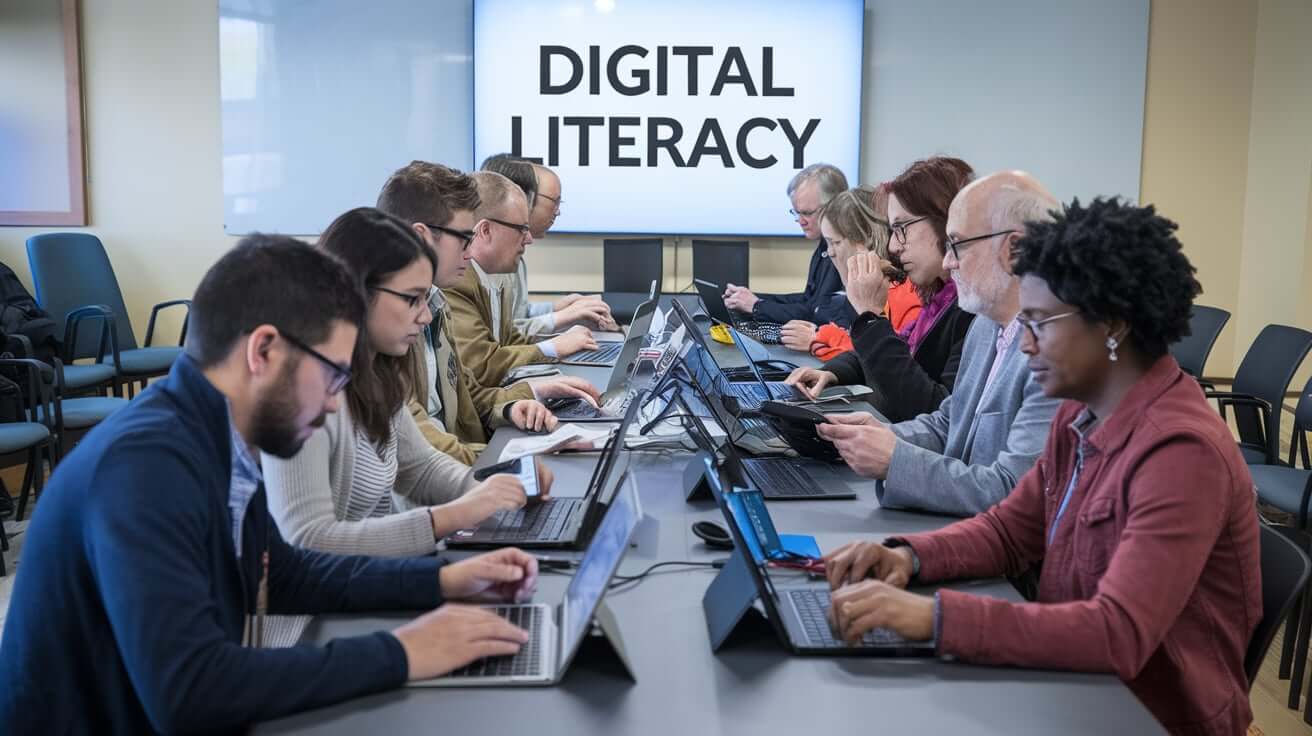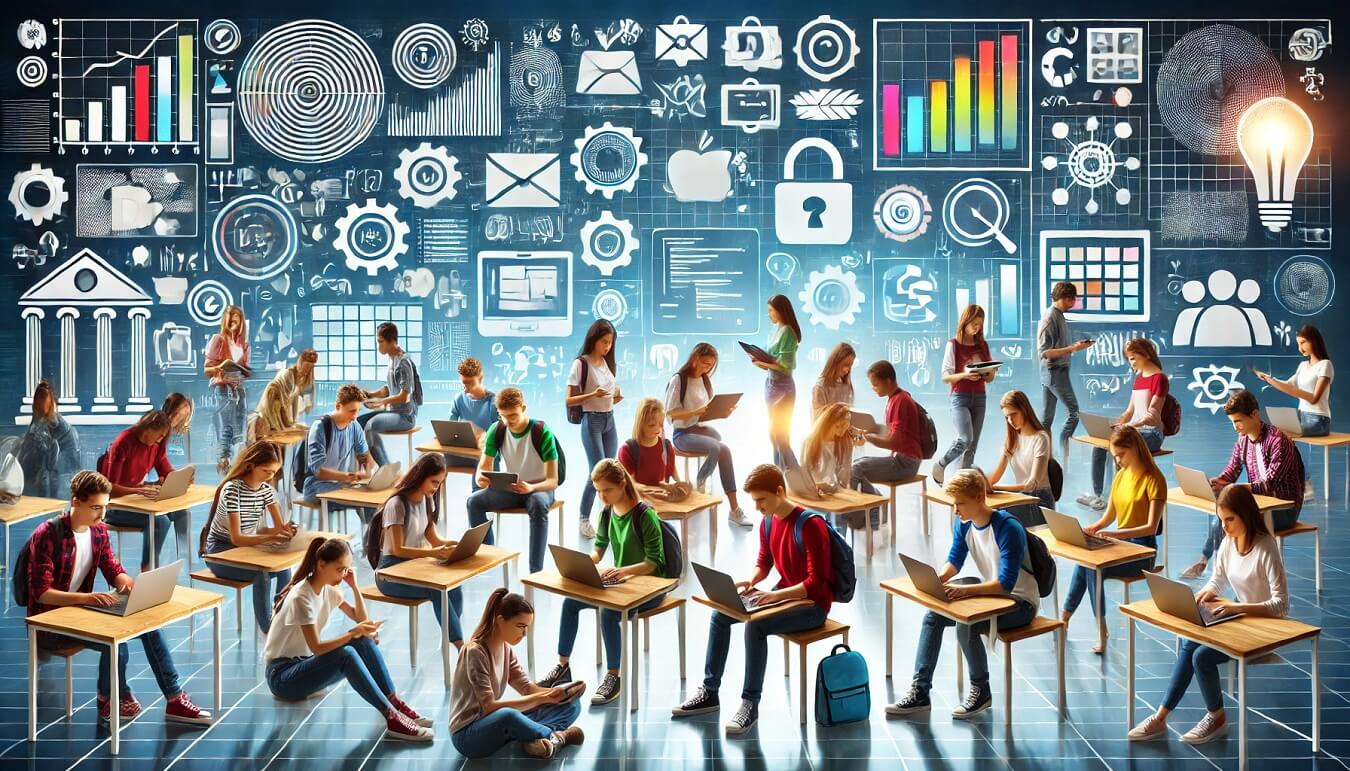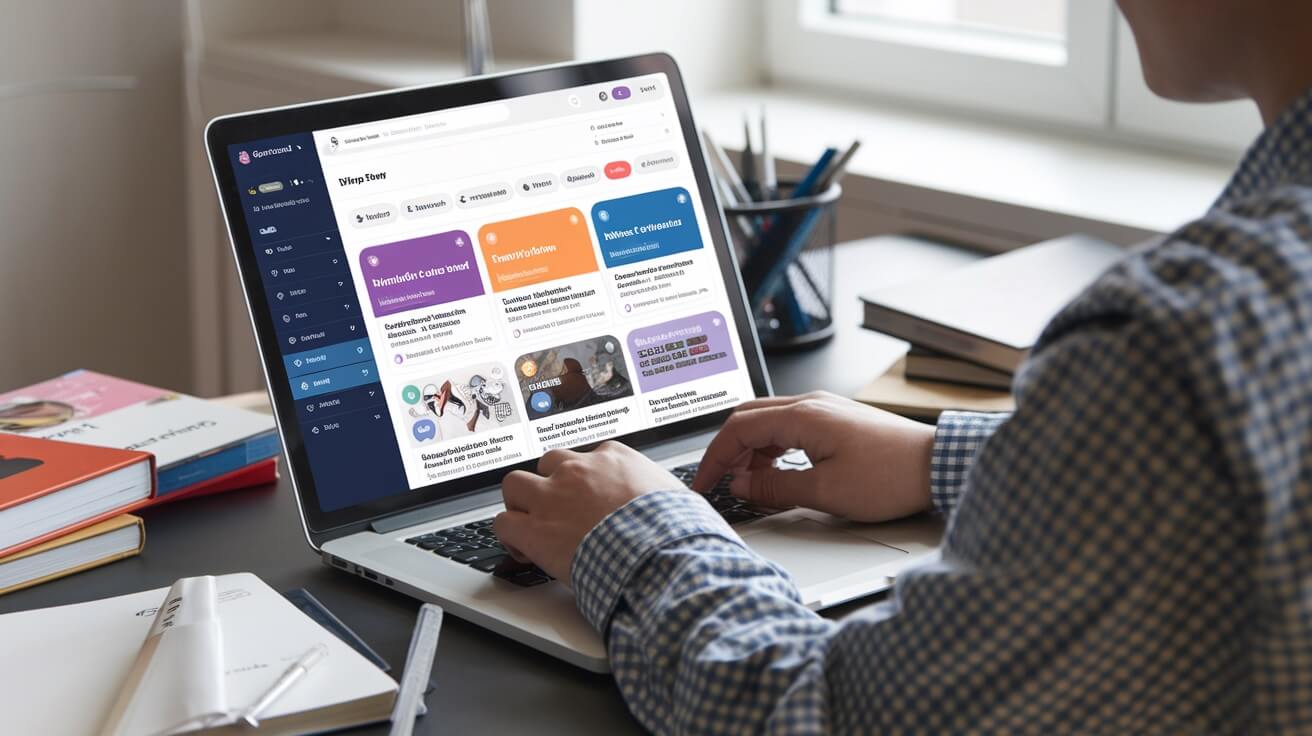
Digital literacy has become one of the most critical skills for navigating our modern world. It goes beyond knowing how to use a smartphone or browse the internet. Instead, digital literacy encompasses finding, evaluating, creating, and communicating information using digital tools effectively and responsibly.
This article explores the concept of digital literacy, explains why it is essential and provides practical insights into enhancing your digital skills.
Table of Content
Understanding Digital Literacy

Digital literacy represents a vital framework for navigating the complexities of our increasingly digital society. This concept extends beyond simply operating devices or using software—it encompasses the ability to critically evaluate information, communicate effectively, and understand the ethical implications of our digital interactions. By fostering these competencies, digital literacy enables individuals to engage with the digital world thoughtfully and responsibly, building a foundation for personal, professional, and societal success.
A digitally literate person demonstrates proficiency in digital tools while understanding their broader impact. For example, someone proficient in digital literacy can discern reliable sources from misinformation online, ensuring that the information they consume or share is credible. Similarly, they can use communication platforms like email and video conferencing to collaborate effectively in work and social contexts.
At its core, digital literacy involves technical skills, critical thinking, and ethical awareness. Technical skills include operating various digital devices and software applications. At the same time, critical thinking allows individuals to analyze and interpret digital content meaningfully. Ethical awareness ensures that users navigate the digital landscape responsibly, respecting privacy, copyright laws, and the well-being of others.
The evolution of digital literacy reflects the rapid technological advancements that shape our world. Initially focused on basic computer usage, the concept now integrates complex elements such as digital citizenship, data privacy, and adaptive learning. UNESCO's recent studies emphasize that digital literacy is indispensable for global education initiatives, helping bridge gaps in access and fostering inclusive growth. By understanding and implementing digital literacy, individuals can unlock their potential in a world increasingly relying on digital interactions for education, work, and everyday life.
Why Is Digital Literacy Important?

Digital literacy profoundly influences virtually every aspect of contemporary life as a foundational skill in education, the workplace, and everyday activities. It equips individuals with the tools they need to thrive in a digital-centric society. By understanding and mastering digital literacy, people can enhance their learning, broaden their career prospects, and navigate the digital landscape more securely and efficiently. Let's explore its significance in key domains in greater detail:
Education
Digital literacy is a cornerstone of modern education. With students' increasing dependence on online learning platforms, they must know how to navigate digital resources responsibly and effectively. For instance, a study by the National Literacy Trust found that students with higher digital literacy levels perform better academically, as they can access, interpret, and utilize information more efficiently.
The Workplace
In today's job market, digital literacy is no longer a nice-to-have skill; it's a necessity. According to the National Skills Coalition, over 90% of jobs require at least basic digital skills. Employers seek individuals who can use productivity tools, collaborate on digital platforms, and adapt to new technologies. For example, marketing, healthcare, and engineering professions often demand proficiency in specialized software and data analysis tools.
Everyday Life
Digital literacy empowers individuals to connect with others, access various services, and stay informed, whether it's through online banking or social media. Moreover, understanding digital tools can protect individuals from online scams and misinformation. The Pew Research Center found that 64% of adults struggle to distinguish fact from opinion online, underscoring the importance of digital literacy.
Digital Literacy Skills
Digital literacy skills are essential for navigating the ever-evolving digital world, offering a foundation for personal and professional success. These skills include many competencies, each crucial in interacting with technology, accessing information, and communicating effectively. Some of the fundamental skills are:
Mastering basic computer operations, such as using software applications, file management, and troubleshooting common technical issues, forms the bedrock of digital literacy. Finding and evaluating relevant information from the vast online content is critical for effective decision-making and problem-solving. Adapting to technological innovations is essential; with daily advancements, staying relevant in the digital sphere requires being flexible and open to learning new tools and platforms. Collaborating on digital platforms is crucial, as many workplaces and educational environments rely on collaborative tools like Microsoft Teams, Slack, and Google Workspace. Effective teamwork requires proficiency in these platforms. Lastly, understanding terms and media familiarity is essential; a basic grasp of digital terminology and familiarity with standard tools ensure users can maximize their potential with technology.
These individual skills can be grouped into three overarching categories:
-
Finding and consuming information develops the ability to locate reliable sources and make informed decisions based on credible data.
-
Creating digital content, such as producing original content for blogs, social media, or video-sharing sites, and showcasing creativity and technical skills.
-
Communicating and sharing media to leverage digital tools to engage with others, whether for personal connections, professional networking, or broader audience outreach.
By learning these digital literacy skills, individuals can navigate the digital landscape effectively and access opportunities that foster growth, innovation, and meaningful connections in an increasingly digital world.
How-to-Develop-Digital-Literacy-Skills

Developing your abilities to learn, share, and organize media using digital technology opens new opportunities. It's about mastering tools and cultivating a mindset that empowers you to adapt and thrive in a constantly evolving digital landscape. Experimenting with digital tools can be your gateway to discovering what works best for you. Trying out new apps, software, or platforms—even if initially intimidating—helps you build confidence and uncover practical uses for these technologies.
Staying up-to-date with technological advancements is equally critical. Technologies change rapidly, and staying informed about trends ensures you remain relevant and prepared to integrate innovations effectively. Focusing on platforms and technologies that align with your personal or professional goals streamlines your efforts, enabling you to prioritize skills that offer immediate benefits.
Adopting a mindset of constant learning is essential. Digital literacy is more than just a one-and-done skill; it requires continuous growth. Enrolling in courses tailored to different aspects of online technologies, such as cloud computing, social media management, or cybersecurity, can help you stay ahead of the curve. Platforms like Coursera, Khan Academy, or YouTube tutorials provide accessible resources for self-paced learning.
When facing new challenges with digital tools, asking for help is a simple yet effective way to overcome barriers. Whether consulting colleagues, joining online forums, or attending workshops, reaching out for guidance accelerates your learning process and fosters collaboration.
As you develop your digital literacy, focusing on key competency areas is essential:
-
Understanding fundamental digital concepts and terminology.
-
Being aware of copyright, intellectual property, and privacy laws.
-
Learning how to incorporate digital tools into workflows efficiently.
-
Staying familiar with devices and software relevant to your field.
-
Recognizing the significance of safeguarding personal and professional data.
-
Analyzing and utilizing digital content effectively.
-
Maintaining a positive and realistic perspective toward technology adoption.
By learning these areas, you'll enhance your digital literacy and unlock many possibilities that extend into every facet of your life, from education and career development to personal growth and active citizenship.
The Benefits of Digital Literacy

Enhanced Learning Opportunities
Digital literacy opens doors to a wealth of online educational resources. Platforms like Coursera, Khan Academy, and Udemy enable individuals to learn new skills and knowledge from the comfort of their homes. Moreover, digital tools like video tutorials, podcasts, and interactive simulations make learning more engaging and accessible.
Improved Employability
Being digitally literate enhances career prospects. The Organisation for Economic Co-operation and Development (OECD) report revealed that employees with strong digital skills earn 17% more than their less digitally literate counterparts. These skills also allow professionals to stay competitive in industries undergoing rapid digital transformation.
Better Civic Participation
Digital literacy fosters informed and active citizenship. By navigating e-governance platforms, individuals can participate in democratic processes, access public services, and advocate for social causes. For example, digitally literate citizens are better equipped to understand and engage in discussions about policy changes or societal issues.
Challenges to Achieving Digital Literacy

The Digital Divide
Despite its importance, not everyone can access digital tools and education equally. The digital divide—the gap between those with and without access to technology—remains a significant barrier. In Nepal, for instance, only 34% of households have reliable internet access, limiting opportunities for education and economic advancement.
Misinformation and Online Safety
The internet is rife with misinformation, making it crucial for users to develop critical evaluation skills. According to the Pew Research Center, most adults need help identifying credible sources online. Additionally, issues like cyberbullying, phishing scams, and data breaches underscore the need for strong digital safety skills.
Keeping Up with Technological Changes
Technology evolves rapidly, and staying digitally literate requires ongoing learning. For many, this constant need to adapt can be overwhelming. Lifelong learning initiatives are essential to help individuals keep pace with advancements.
How to Improve Digital Literacy
Educational Initiatives
Schools and universities play a critical role in fostering digital literacy. Incorporating digital skills into curricula ensures that students are equipped for the future. For instance, Estonia's e-School initiative integrates digital tools into classrooms, helping students develop technical and critical thinking skills.
Community Programs
Community centers and libraries often provide free workshops on digital skills, especially for older adults and marginalized groups. These programs are invaluable for bridging the digital divide and promoting inclusivity.
Personal Development
Improving digital literacy starts with small steps:
-
Take online courses on platforms like LinkedIn Learning or Coursera.
-
Practice using new tools like video conferencing apps or cloud storage systems.
-
Stay informed about digital trends through reputable news sources and technology blogs.
Conclusion
Digital literacy is not just a skill—it's a necessity in our interconnected world. It enables individuals to learn, work, and participate in society more effectively while navigating the challenges of misinformation and technological change. By investing in digital education and personal development, we can ensure a future where everyone has the opportunity to thrive in the digital age.





